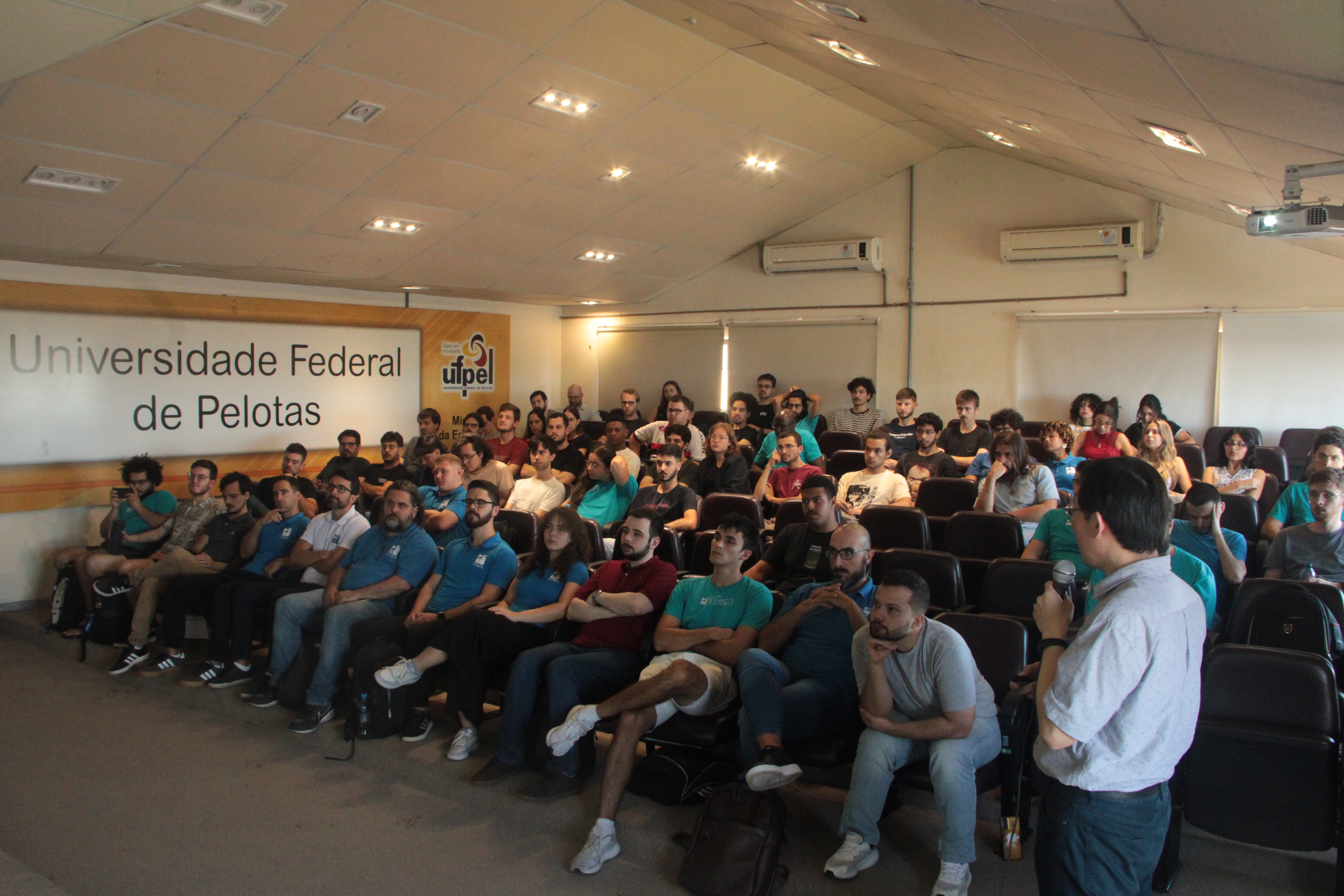On the Rate-Distortion-Complexity Trade-offs of Neural Video Coding - Lecture by Professor Wen Hsiao Peng
The Student Branch of the Federal University of Pelotas organized and managed a lecture by esteemed Professor Dr. Weng Hsiao Peng. The lecture began with a brief overview of the institution where Professor Peng conducts his research, followed by an in-depth discussion on the technical aspects of the topic.
After Professor Peng concluded his presentation, attendees were invited to a coffee break, providing an opportunity for networking and discussion. Following the break, student members of the branch delivered short presentations on their ongoing research projects.
To successfully host this event, the Federal University of Pelotas Student Branch was responsible for the following tasks:
- Managing attendee registrations
- Reserving the auditorium for the lecture
- Organizing the coffee break
- Promoting and publicizing the event
Date and Time
Location
Hosts
Registration
-
 Add Event to Calendar
Add Event to Calendar
Speakers
Wen Hsiao Peng of National Yang Ming Chiao Tung University (NYCU)
On the Rate-Distortion-Complexity Trade-offs of Neural Video Coding
Recent years have witnessed much research effort being focused on exploring the full potential of
neural video coding. Conditional autoencoders have emerged as the mainstream approach to efficient
neural video coding. The central theme of conditional autoencoders is to leverage both spatial and
temporal information for better conditional coding. However, a recent study indicates that conditional
coding may suffer from information bottlenecks, potentially performing worse than traditional residual
coding. To address this issue, the state-of-the-art conditional coding incorporates a large number of
high-resolution features as the condition signal, leading to a considerable increase in the number of
multiply–accumulate operations, memory footprint, and model size. This talk aims to delve into the
rate-distortion-complexity trade-offs of modern neural video coding. I shall disclose how the newly
proposed conditional residual coding, an emerging new school of thought, and its variants may strike a
better balance among rate, distortion, and complexity.
Biography:
Dr. Wen-Hsiao Peng his Ph.D. degree from National Yang Ming Chiao Tung University (formerly NCTU),
Taiwan, in 2005. He was with the Intel Microprocessor Research Laboratory, Santa Clara, CA, USA, from
2000 to 2001, where he was involved in the development of International Organization for
Standardization (ISO) Moving Picture Experts Group (MPEG)-4 fine granularity scalability and
demonstrated its application in 3-D peer-to-peer video conferencing. Since 2003, he has actively
participated in the ISO/IEC MPEG digital video coding standardization process and contributed to the
development of H.264/AVC Scalable Amendment, H.265/HEVC, H.265/HEVC Screen Content Coding
Extensions (SCC), H.266/VVC, and JPEG AI. Prof. Peng is currently Professor with the Computer Science
Department, National Yang Ming Chiao Tung University (NYCU). He was a Visiting Scholar with the IBM
Thomas J. Watson Research Center, Yorktown Heights, NY, USA, from 2015 to 2016. He has authored
over 120+ technical papers in the field of video/image processing and communications, and over 60
standards contributions. His research interests include neural network-based image/video
coding, ISO/IEC & ITU-T video coding standards, visual signal processing, computer vision, etc. He was
elevated to IEEE Fellow for contributions to the design and implementation of video coding algorithms
and standards.

